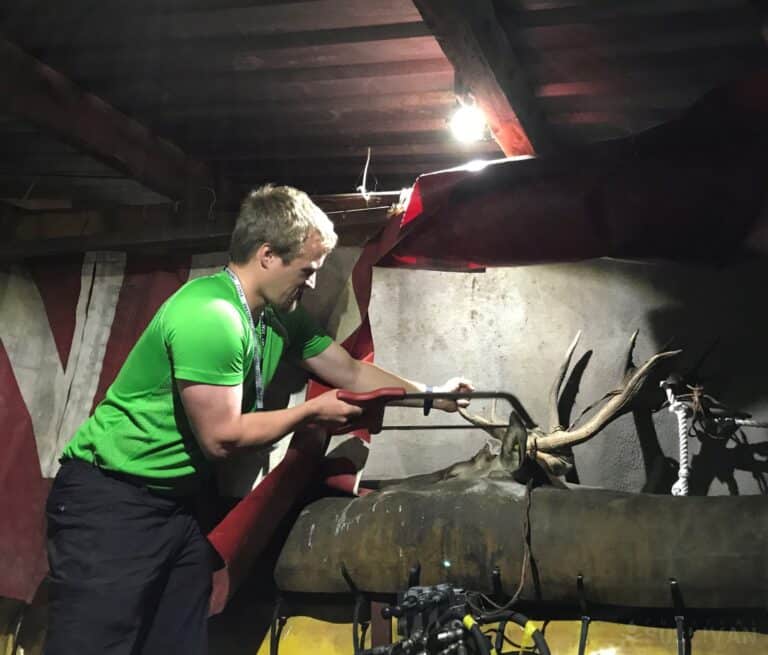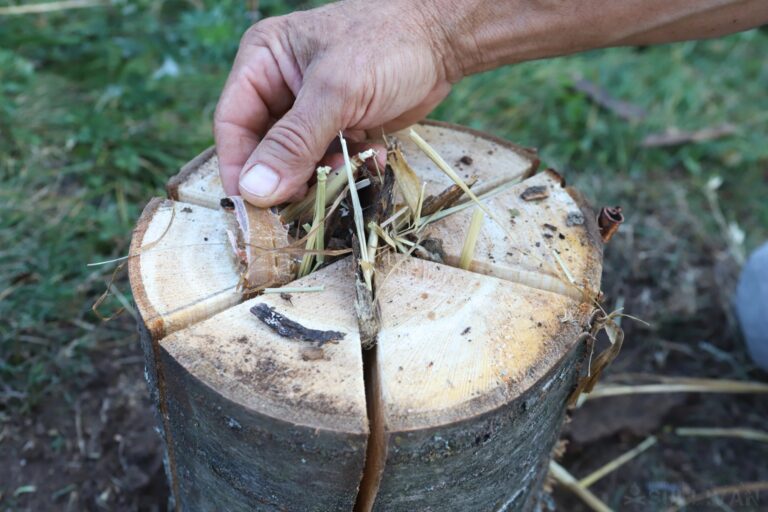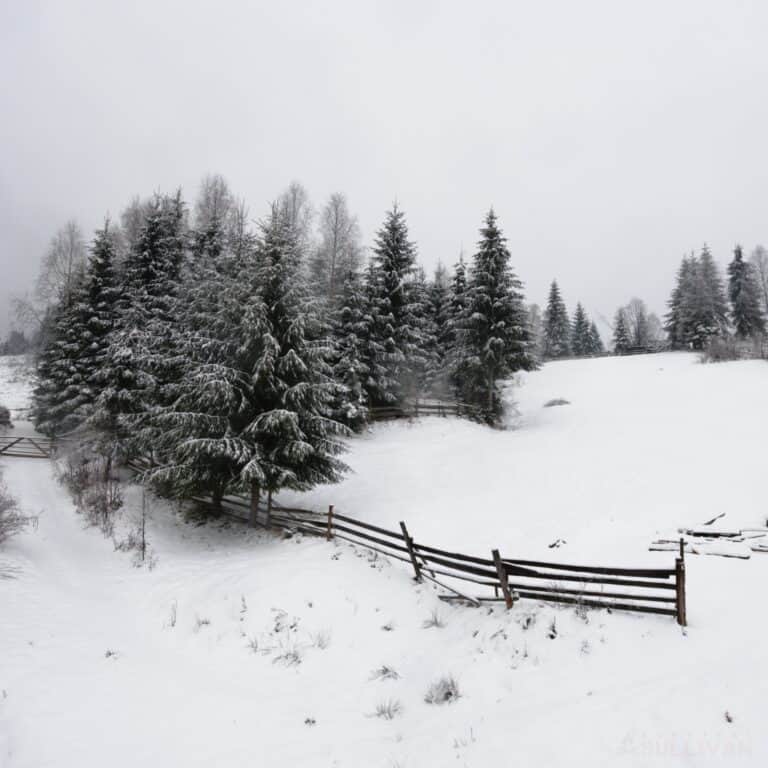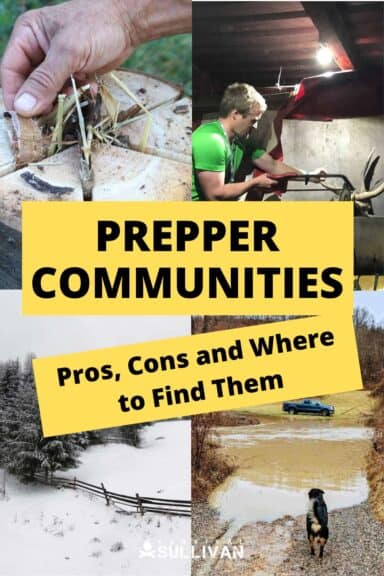As preppers, we know that holistic, total readiness is the name of the game. No matter what happens, no matter what takes place, no matter what the nature of the threat is, we will be ready to confront it and hopefully surmount it.

man de-antlering a red deer
But probably the biggest fallacy that folks like us fall victim to, that I’ve seen, is the lone survivor trap. Everything is up to us, there’s no one coming, there’s no one that we can count on, so just focus on everything that you can do, and plan accordingly.
I understand it, and I was even like that at one point in my life, but the fact of the matter is that you really don’t want to go it alone in any sort of crisis situation, especially a societal collapse.
It’s better to be a part of a prepper community for mutual support and assistance. The concept is already popular, and getting more popular all the time.
If you’re unfamiliar with the term, it’s time to change that. Keep reading and I’ll tell you everything you need to know about prepper communities.
Just What is a Prepper Community?
A prepper community is, just like the term suggests, a collective of people who live a lifestyle of readiness and preparation- preppers… nominally, preppers that are actually living and working near each other for mutual aid and benefit.
But in reality, and more prosaically, a prepper community is any committed group of preppers that are trying to help each other.
They might not actually live alongside one another geographically, and they might not be neighbors at all. They might not even live in the same neighborhood or potentially even the same city.
It’s a voluntary thing, and as long as you and other people know each other, trust each other, and pledge to come together for mutual survival in a time of crisis, you can say you have found a prepper community.
How Do Prepper Communities Function?
The functionality of a prepper community differs significantly depending on the level of investment expected of members and what kind of community it is.
On the upper end of the spectrum, a prepper community functions very much like a true commune, or compound, complete with restrictive covenants (guidelines, rules, and binging agreements on what you can do with your property under certain conditions).
Neighbors all live alongside one another, maintain a certain level of readiness, contribute mutually beneficial skills to the good of all, and pledge to pass on their properties either to other members of the community, like-minded persons, or other people chosen by a committee or board that is in charge of the community.
On the opposite end of the scale, you have prepper groups that do meet-ups, swap skills, gear and basically function as emergency contacts in times of crisis.
Others might be committed to actually responding and checking on each other with a preset communications and rescue plan depending on the size of the group and proximity to one another.
Basically, it all depends! And which one’s right for you depends on your wants and needs…
What are the Pros of Being in a Prepper Community?
As you might expect, there are pros and cons to being part of a prepper community, of any kind.
Believe me, there are some serious advantages, especially for folks who don’t have a lot of support in the form of family or close friends. We’ll start with the pros first:
- Assistance in times of crisis. Whether your house gets flattened by a tornado, you’re driven out of town by rioting or any other kind of crisis has befallen you, if you’re part of a functional mutual assistance group there should be people ready willing and able to help you. People who actually know you!
- Education and skill building. No matter what sort of prepper community you are a part of, if there’s one thing you can count on it is that you’ll be among peers and friends. People that have the same interests as you, generally, and understand the wisdom and prep. Crosstraining and skill-building opportunities are huge, and you’d be wise to take advantage of them to turbocharge your own education.
- Redundancy. You know the old maxim, two is one and one is none. If you’re part of a prepper community, even if multiple people lose prerequisite gear, or deaths result in the loss of their personal skill sets the more people you have in your group the more chances there are that you’ll have replacements when you need the most.
- Certainty. Assuming you’re actually in a tight-knit prepper community, when the balloon goes up, it’s nice to know that there is a relatively small group of people that are looking out for each other. You won’t be one of thousands, tens of thousands, hundreds of thousands or millions that are clamoring for help and assistance from first responders. Your brothers and sisters will be looking out for you. Some outcomes are dictated by timely intervention, so this perk cannot be underestimated.
- Networking. Birds of a feather flock together, and the same is certainly true of preppers. Being amongst fellow travelers has its own advantages and not just when it comes to emergencies and survival. Fellow preppers can help each other out with referrals, tips, and countless other little favors they can make getting things done and opening doors easier and cheaper.
And there are many more tangible and intangible benefits besides, but those are the big ones.
What are the Cons of Being in a Prepper Community?
It isn’t all sunshine and rainbows when it comes to being part of a prepper community. Naturally, there are some downsides and other things that you probably rather not deal with, but deal with them you must- if you want to be part of the group.
- Tribal function. This will vary somewhat depending on the seriousness and intensity of the prepper community, but you’ll be functioning on a tribal basis more or less. Part of being in a tribe is subsuming some of your own will for the good of the tribe. This means that if you sign on the dotted line, you might not always get your way on matters big and small.
- Requirements. In all but the loosest prepper collectives, you’re going to have chores and duties. These might be in the form of meet-ups, dues, contributions to mutual gear stockpiles, supplies, and so forth or even contributing your time to endeavors that will benefit the group. It might be something as simple as a monthly or bi-monthly meet-up.
- Property concerns. You’re going to be a part of a legitimate prepper community, either a planned one where you buy into an architecture of highly restrictive covenants or you are leasing or renting property from someone that owns a large parcel, the dispensation of your property is mostly decided for you. You might not be able to sell to the highest bidder, or sublet, but instead might be forced to keep the property in the family, so to speak, or sell to other like-minded people when and if you decide to leave.
- Politics. Believe me, no matter how good the people are, no matter how much you trust them, no matter how big or small the group, you’re always going to be dealing with politics in a prepper community of any kind. It could be the soft tyranny of power-hungry mods and administrators in an online group, or the warlord and would-be ruler in a decisioning committee, as part of a planned prepper community who fancies himself a king and you part of his kingdom.
These negatives are highly variable, as you might expect, and it doesn’t mean you should have let them deter you from seeking out a prepper community. I’ve been a part of several, and in my experience, so long as you choose carefully and pay attention, the pros far outweigh the cons.
What Kinds of Skills Are Needed to Join Prepper Communities?
Again, it totally depends. In the loosest prepper collectives, what you might call clubs, there might not be any skill requirements for joining, only that you take things seriously, show interest, and generally try to be a net positive for the group.
But, if you are going to join a legitimate prepper community that is planned, governed, and functions all for one and one for all, you’ve got to bring something to the table.
If you are a Joe Public-type prepper who knows how to do a little bit of everything, that might suffice for a family endeavor or a neighborhood of like-minded people.

adding tinder to Swedish fire log
For serious communities, the ones that consist of underground bunkers with completely redundant supplies of water, power, and more you might need legitimate skillsets, something like “engineer,” “doctor,” “power plant technician,” etc. – skillsets that can help keep an actual society running.
Lots of people know how to shoot. Lots of people know how to hunt. Plenty of folks know how to garden. That won’t be enough to make it into the so-called big leagues.
However, some prepper communities are more about whether you can afford to buy in or not. If you’ve got the coin, that might be all they care about so long as you adhere to the covenants, if there are any.
The Different Types of Prepper Communities
So all this talk about communities and it seems a bit like fishing. You never know what you’re going to catch!
To help simplify things, I’ll explain some of the more common types of prepper communities so you know what’s out there and know what to look for.
Online
The simplest prepper communities these days and often the easiest to access. An online community might be as simple as an active forum where all members are expected to contribute or post about their growth, skills, and experiences so that all may learn together.
Good ones will even have organized meet-ups regionally or maybe even for the whole forum for people who want to contribute.
They sound low effort and low impact, and compared to legitimate “meet space” prepper communities they are, but they can still be a valuable source for learning, meeting like-minded people, networking, and most importantly, actually getting into one of those real-world communities.
Definitely don’t rule them out, but be prepared to do a whole lot of sorting to sift the wheat from the chaff. Crazy characters, e-drama, nonsense, howl-at-the-moon scenarios and theories, and a lot more all wait to waste your time and your effort. Don’t commit unless you find a good group of folks online.
Offline
As you might expect, there are plenty of offline prepper communities you could join, and I’m listing this category separately from the one above because not all communities have a mandate of living alongside one another or even necessarily committing to help one another in times of crisis.
These offline groups exist more as ways to facilitate interactions between people who might be local or nearby on a county or regional level, gear exchanges, skill-building days, and things like that.
Oftentimes, more advanced and committed members might serve as “nodes” that help coordinate with first responders and state agencies or direct help and charity to where they can do the most good for fellow members in affected areas.
These are harder to find and get into today compared to decades past, but they are definitely out there, and getting involved in a good group online can quickly get you in touch with people in the real world to take things further.
Urban
Urban prepper communities are some of the most diverse and interesting when it comes to lifestyle choices and investment. Metro areas tend to be melting pots, for better or worse and usually for the worse.
That said, plenty of sharp, savvy urban dwellers manage to link up, coordinate, plan, and help each other when times are tough, be it a disaster or major blackout, or even something like a city-shattering riot.
One of the best and most effective urban communities you’ll see regularly is in the form of an apartment or condo stack that organizes like a neighborhood would in suburbia.
If you can get one or more people on each floor, and all floors, to work together, this can greatly increase survival chances during any kind of disaster, and particularly a fire, flood, or riot.
Multiple families or motivated individuals working together can secure these large and incredibly sturdy buildings against nearly any threat with the right preparation.
Rural
Rural prepper communities are exactly what they sound like, and these are far and away the most common of all types.
Whether they would call themselves such a community or not, most folks who live out in rural areas are innately more dependent upon each other, and if you have good relations with your neighbor (or even if you don’t) it’s expected to help one another in times of feast and famine.
These are the types of bonds that money simply cannot buy, and being in the right small town, and being accepted after proving yourself a good person and a good neighbor, will basically make you a cog in a well-oiled machine when it comes to preparing for the worst and looking out for each other if it does happen.
Of course, rural prepper groups have their own problems just as small towns and rural living do.
Finances will be a problem for a lot of folks regardless of what they do, and plenty of country folk focus on more prosaic day-to-day problems and events, and it might be difficult to get them to spare their precious time and energy preparing for more invasive, but still realistic, problems from outside the community.

Retreats
I classify any prepper community as a “retreat” if it is an actual, legitimate, self-contained community that is planned in some way.
You might think of this as the stereotypical “compound” that has multiple related or close-knit families living on it. It might take the form of a neighborhood, where every neighbor truly knows and looks out for one another and protects itself against outsiders.
It can even take the form of a fantastically expensive real estate development that may or may not feature those aforementioned bunkers or subterranean shelters. One where absolutely everything is needed for continuity of local government and utilities even after the rest of the world goes dark.
These are worth categorizing as their own unique group because, as a rule, they are the hardest to get into. They require the most commitment, have the most rules, and the most expectations of members, generally speaking.
But if you really want to be part of a true group, that functions as a group, this is the way to do it.
How Can You Find One?
Looking for a prepper community is dependent on the kind you want, but as you’re probably already guessing, the best way to start is online.
You can just do a search for them and start clicking around and see what you find. Hop on prepper-centric forums, social media groups, discord servers, hangouts, and so forth.
See who’s doing what and who has good things to say about different groups of people. Ask if you can get involved.
This is an organic thing, something you’ve got to work at, although ones that function more like clubs rather than actual tribes often have a straightforward sign-up process to get on the wire or newsletter.
If you really want to start living among like-minded people, you’ve got to find like-minded people in real life. Online is not enough, although online interaction can facilitate real-world meet-ups and you go from there.
What’s important is that you make sure that your “working together” has an actual purpose, not just flexing what you know or have, and not just doing “hobby days” at the range or at the campsite.
If you’re going to try to get into a retreat-style prepper community, you might need to be ready to shell out a ton of cash to buy-in, or go through a lengthy vetting, checking, and interview process before you’re even properly considered.
Note that most such communities you can just buy your way into, or waltz in and be counted among fellows, are likely not worth your time. These groups, good ones, are exclusionary for a reason.
How Can You Build a Prepper Community?
Building your own prepper community is an absolutely viable option. But it is an option that is both easier and harder than you might think.
The place to begin is often at home. If you don’t have your family on board with prepping, a real partner to help you, why not? If, for whatever reason, family is just a no-go look at your friends.
Chances are you’ve got one person who at least thinks and nominally prepares like you do or if not someone who is interested and accepting of the lifestyle. Having one person you know and trust already can form the core or kernel of a blossoming local prepper group.
If you have good relations with your neighbors in your neighborhood, or building, start small and start gently: Go around and introduce yourself, tell them you’re putting together a neighborhood emergency communication plan. Then a natural disaster or fire plan. And so on and so forth.
The people who are interested and keen to help out will make themselves known.
You really can do all of this yourself, but you’re also going to be adding additional educational requirements.
Leadership challenges, even if you’re just a nominal leader, are very, very real and it pays to know how to handle people, how to assuage them, how to persuade them, and if necessary, how to gain compliance without pissing them off.
It’s a lot easier said than done, but I promise you it’s really rewarding at the same time.
Are Mutual Assistance Groups the Same as Prepper Communities?
Yes, mostly. Some folks might argue semantic points, but a mutual assistance group is one way or the other a group of people, or a community, that agrees and is bound to help one another according to what everyone agrees to when they sign up or join the group.
These folks might be neighbors, they might live in the same county they might just live in the same region. It doesn’t matter: they are a type of prepper community by another name.
Is a Neighborhood Watch Considered a Prepper Community?
No, not really, and now I’m the one that gets to be pedantic. A neighborhood watch is a function, or a team, and though they may belong to a prepper community they aren’t necessarily a community unto themselves.
A neighborhood watch could consist of neighbors who are looking out for speeders, trespassers, drug dealers, prowlers, and folks that just shouldn’t be “around here”.
If your prepper community is your neighborhood, then by golly you should have a neighborhood watch. But a neighborhood that has a watch isn’t necessarily a prepper community. Does that make sense?
Some Prepper Communities Worth Checking Out
Don’t worry, I won’t leave you hanging. I’ve got several examples of actual, real-life prepper communities of all kinds that you can check out below for inspiration, to help you figure out what to search for, or maybe even that you can join yourself if you’re in the area and of a mind to.
Vivos xPoint
An entire community located far from civilization, one with homes made from old decommissioned ordnance storage bunkers. You can buy in, but there is a vetting process.
PrepperNet – Triangle
A large and bustling online prepper community that does regular get-togethers and training days. Central to Raleigh-Durham, NC, area. Great if you are nearby!
Sustainable and Self-Reliant Network – Florida
Another large group near Orlando, Florida.
Primary & Secondary Preparedness/Survival/Outdoors
A Facebook group with a hardline bent toward what actually works. No nonsense allowed, and lots of seasoned, pro guys contributing info on what works and what doesn’t.

The post Prepper Communities: Pros, Cons and Where to Find Them appeared first on Survival Sullivan.
By: Tom Marlowe
Title: Prepper Communities: Pros, Cons and Where to Find Them
Sourced From: www.survivalsullivan.com/prepping-communities/
Published Date: Tue, 06 Feb 2024 10:54:47 +0000
------------------------
Did you miss our previous article...
https://bushcrafttips.com/bushcraft-news/triangular-bandage-more-than-a-dozen-uses
 What is BushcraftSurvival SkillsToolsVideosBushcraft CampsBushcraft KitsBushcraft ProjectsPrivacy PolicyTerms And Conditions
What is BushcraftSurvival SkillsToolsVideosBushcraft CampsBushcraft KitsBushcraft ProjectsPrivacy PolicyTerms And Conditions
